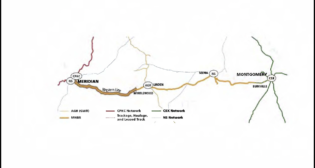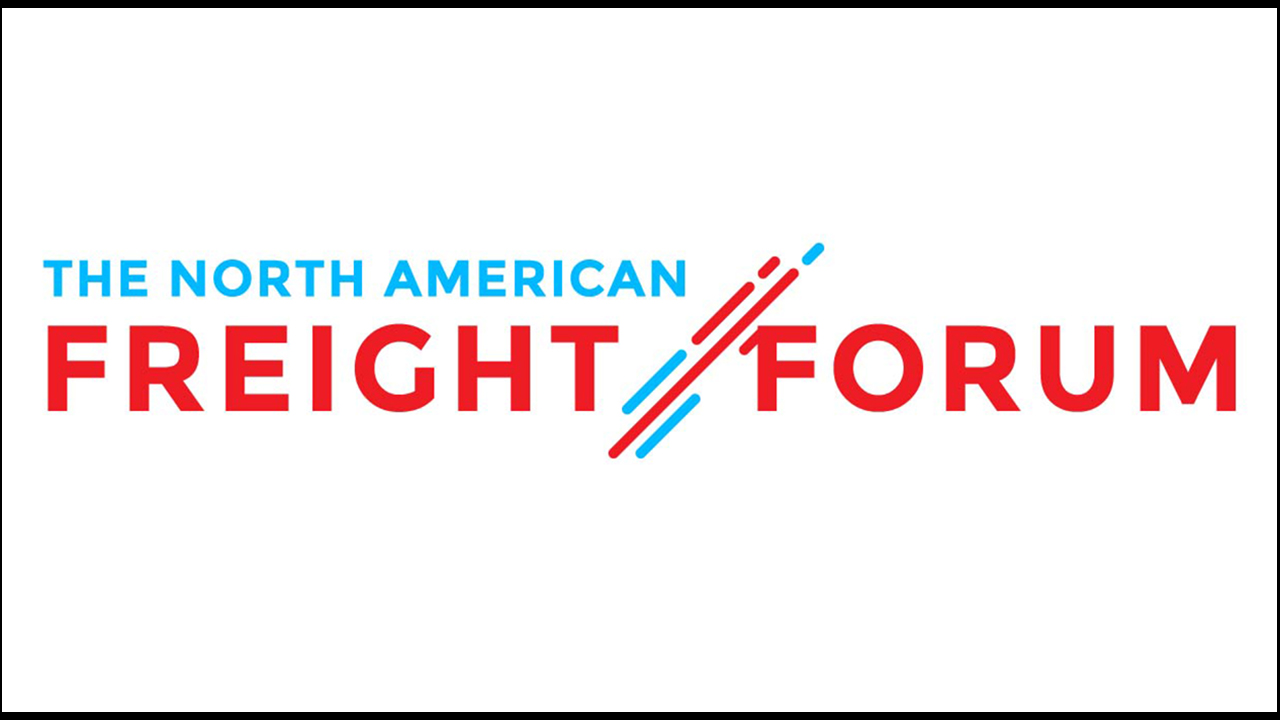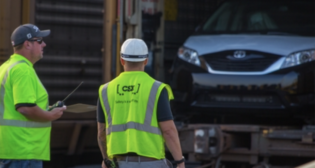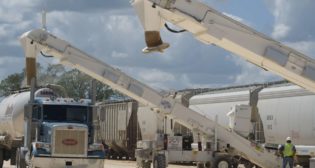
North American Freight Forum Under Way
Written by Jim Blaze, Contributing Editor
The North American Freight Forum (NAFF), created by Philadelphia-based Strategic Rail Finance Chairman and CEO Michael Sussman, uses an interesting, different approach to try to link the energy and environmental impact characteristics of rail freight with land-use planning. This new initiative, which is closely tied to Sussman’s OnTrackNorthAmerica non-profit, synthesizes questioning and debate into a logical methodology to drive consensus and hopefully provide opportunities to grow business. The NAFF approach doesn’t start off with a solution and then try to argue toward justifying its conclusion.
This questioning-first approach marks an interesting renaissance of classical Greek logic as used by Socrates—a method to which I was introduced as a rational thinking tool about conflicting arguments in my sophomore year of college in a course in Logic at St. Anselm College, New Hampshire. The questioning method was also a useful resource in my college’s debating team. (St. Anselm later won a national title in academic debating.)
While Michael Sussman is the point person for introducing this multiple-subtopic rail forum process, it wasn’t he that first caught my attention. Instead, it was a lecture note by former STB Chairman Daniel Elliot that grabbed my attention. In that piece, Elliott reflected on all the adversarial (trial-like) discussions that during his career had framed the debate about railways vs. other freight modes. Elliot took from his STB regulatory and legal career experience a belief that all freight movement stakeholders hunger for an alternative to the almost-constant litigation, regulatory proceedings and lobbying. They’re searching for a different, more-engaging approach, and better solutions. Some of these solutions require a realignment of various federal and state agency planning, funding streams, and better-integrated land-use connectivity to the rail network.
Sussman, collaborating with Elliot and others, created the North American Freight Forum. NAFF’s method is a moderated process that is designed to guide participants through an exploration of their commonalities, collectively searching for points of contention that can be transformed into consensus-based action plans, then turning those results into multiple-party accountability.
At the core of this effort is a Socratic-like tool Sussman calls the “IntelliSynthesis™ dialogue method.” What has been missing, he asserts quite logically, is a means of engaging in a learning/sharing back-and-forth discussion. IntelliSynthesis™ employs a process that engages the parties by using non-threatening questioning reasoning paths to fashion a better way to grow use of rail freight while preserving competition. It starts, if you will, from the “search for first principles” that many engineers and investors have mastered over the centuries.
IntelliSynthesis™ interactions should illuminate the dilemmas that often are bottlenecks for the railroad carriers and their customers, ultimately helping the diversified group apply collective intelligence to build, and then try, groundbreaking solutions. Rather than more funding, better use of private and public capital is needed and should be open for discussion.

NAFF’s first public engagement, the live and virtual OnTrack2025 IntelliConference, takes place Dec. 5, 2023 at Temple University in Philadelphia. This event is the launch of a two-year effort to try to bring parties together that have heretofore often been at legal odds if not in outright competition, to search for different transport efficiency and land-use business patterns that could generate more rail carload and intermodal opportunities.
In the digital age, NAFF uses information technology to capture and catalogue the participants’ record of questions, pros and cons and possible resolutions, that provide an intelligent and on-going synthesis of positions. This is a live record of the discussions, facts and the hypotheses—all kept by a master during the proceedings and electronically accessible after the event as a procedural record. And while it might sound adversarial, it’s realistically more of a question-and-evidence live recording, subject to later amendments as the participants look deeper during the days and weeks that follow into specific subjects.
I had a chance to witness the IntelliSynthesis™ approach during a large and engaging one-day meeting where more than 40 different parties laid out questions with hypothetical and factual pros and cons of a large-scale electrification of the U.S. railway network. The initial objective wasn’t to reach a consensus on what solutions would follow. Rather, it was for the parties to listen to and acknowledge the unknowns of different possible investment changes and their outcomes. It marked the beginning, not the end, of a search for answers.
In late October, I audited the NAFF team’s questioning-logic files. Over a three-day period, I examined more than a dozen detailed railway subject dialogue agendas. I did not discover a single preferred solution. It’s an open process in my book. The process broadens the questions by reaching out to many stakeholders. Some of you reading this column might have a much-needed perspective we all need to hear.
There is no cost to participate in the OnTrack2025 IntelliConference, other than the opportunity cost you place on your personal time. I think it’s well worth it.


![“This record growth [in fiscal year 2024’s third quarter] is a direct result of our innovative logistic solutions during supply chain disruptions as shippers focus on diversifying their trade lanes,” Port NOLA President and CEO and New Orleans Public Belt (NOPB) CEO Brandy D. Christian said during a May 2 announcement (Port NOLA Photograph)](https://www.railwayage.com/wp-content/uploads/2024/05/portnola-315x168.png)
